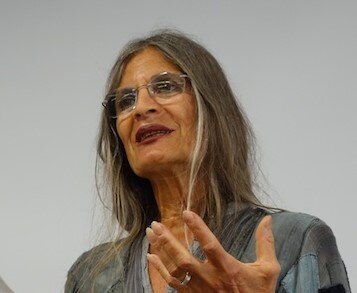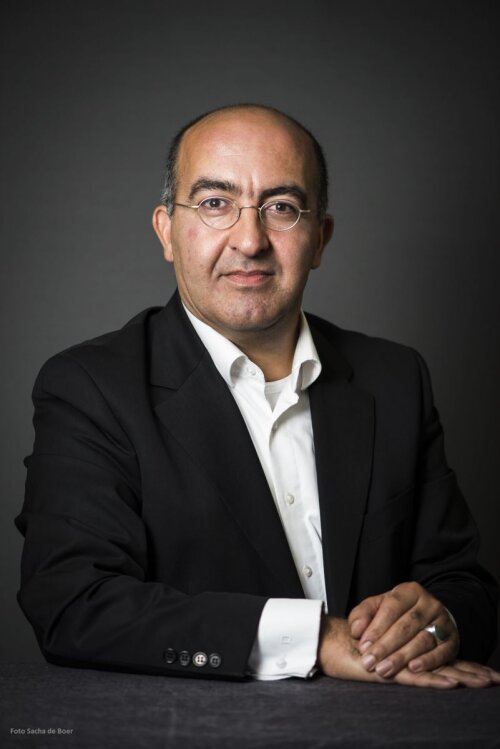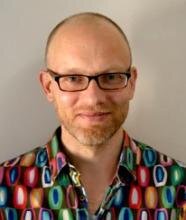Colloquium "Mystical Freedom: Traditions and Future"
1-2 December 2016
University of Antwerp, Hof van Liere
Prinsstraat 13, 2000 Antwerp
Colloquium organized in cooperation with the Ruusbroec Institute and the University Centre Saint-Ignatius Antwerp (UCSIA) of the University of Antwerp.
Thursday 1 December 2016
- 20.00-21.30 h Freedom “Incised upon the Tablets”
Ada Rapoport-Albert (University College London)
Friday 2 December 2016
- 09.00-09.15 h Welcome
- 09.15-10.00 h Of Heresy and Piety: Islamic Law and Transgressive Mystics
Asghar Seyed-Gohrab (University of Leiden) - 10.00-10.45 h Freedom of the Spirit: Meister Eckhart and his Legacy
Ben Morgan (Worcester College, University of Oxford) - 10.45-11.15 h Coffee break
- 11.15-12.00 h Types of Freedom in Jewish Mysticism
Moshe Idel (Hebrew University of Jerusalem)
Session moderated by Dr. Theodor Dunkelgrün (CRASSH Centre for Research in the Arts, Social Sciences and Humanities, University of Cambridge).
Abstracts
Freedom "Incised upon the Tablets"
Prof. dr. em. Ada Rapoport-Albert (University College London)

Ada Rapoport-Albert is Professor emerita of Jewish Studies and former Head of Hebrew and Jewish Studies at University College London (UCL). She is a historian of Jewish spirituality and mysticism, with special interest in Hasidism, the Sabbatian movement, ascetic practice in various pietistic circles, and gender issues relating to the forementioned topics. Her publications include Women and the Messianic Heresy of Sabbatai Zevi 1666-1815 (2011) and, in Hebrew, Studies in Hasidism, Sabbatianism and Gender (2015).
Of Heresy and Piety: Islamic Law and Transgressive Mystics
Prof. Asghar Seyed-Gohrab (Leiden University)

Asghar Seyed-Gohrab is Associate Professor at Leiden University. His publications include Soefism: Een levende traditie (Amsterdam: Prometheus / Bert Bakker, 2015); The True Dream: Indictment of the Shiite Clerics of Isfahan (London: Routledge 2017, together with S. McGlinn); Literature of the Early Twentieth Century: From the Constitutional Period to Reza Shah (ed., London/New York: I.B. Tauris 2015); Layli and Majnun: Love, Madness and Mystic Longing in Nizami’s Epic Romance (Leiden/Boston: Brill, 2003); Mirror of Dew: The Poetry of Ālam-Tāj Zhāle Qā'em-Maqāmi (Cambridge: Harvard University Press, 2015); Metaphor and Imagery in Persian Poetry (ed., Leiden/Boston: Brill, 2012); The Great Omar Khayyam: A Global Reception (ed., Leiden: Leiden university Press, 2012); Courtly Riddles: Enigmatic Embellishments in Early Persian Poetry (Leiden: LUP, 2008, 2010). He is the founding general editor of the Iranian Studies Series at Leiden University Press, and the Modern Persian Poetry Series in Dutch.
Freedom of the Spirit: Meister Eckhart and his Legacy
Prof. Ben Morgan (Worcester College, University of Oxford)

Ben Morgan is Associate Professor in German and Fellow of Worcester College (University of Oxford). He is Modern Languages Coordinator for Oxford Comparative Criticism and Translation. Ben Morgan’s main research interests are in German intellectual history (medieval mysticism, Nietzsche, early psychoanalysis, Heidegger, the Frankfurt School); German film (Fritz Lang, Leni Riefenstahl, the ‘Heimat’ film) and comparative literature. He is the author of On becoming God: Late Medieval Mysticism and the Modern Western Self (New York: Fordham UP, 2013).
Types of Freedom in Jewish Mysticism
Prof. Moshe Idel (Hebrew University of Jerusalem)
